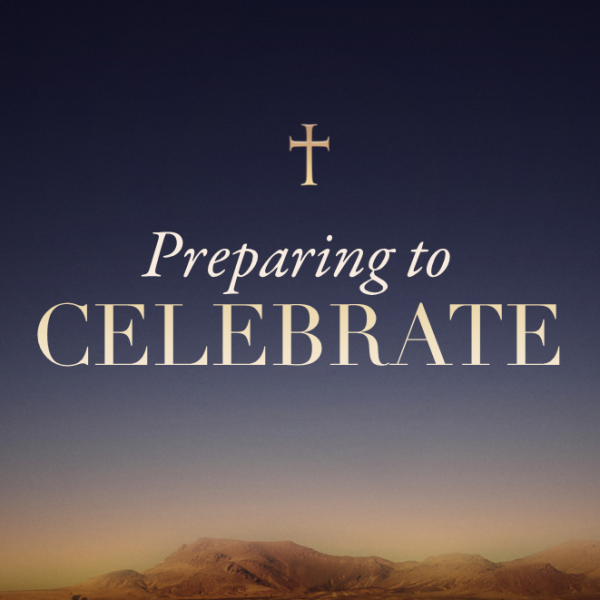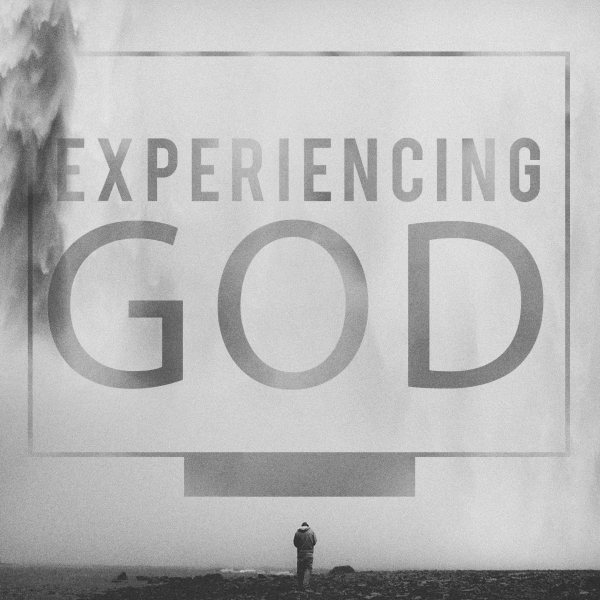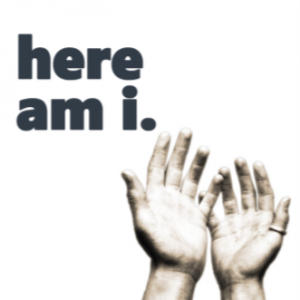The God of Sufficiency
LENT DEVOTIONS (WEEK 4)
This week we move from a place of a challenge to a place of familiarity. The Lenten passage this week is one that is well known across many Christian denominations. For our devotion, we focus on the latter half of this passage and how it might inspire us in a new and fresh way.
SCRIPTURE: John 3:19-21
DISCUSSION: Take some time to talk about or draw on paper different opposites that you see in your everyday life? What can you learn from them? Together, think of and share times that light was helpful. Also, think of and share times where light was uncomfortable. This John passage urges us to seek truth and to live in the light. What might that look like for you in your home? In your school? In your community?
ACTIVITY: One way that we can follow Jesus is by looking for ways to share the “light of Christ” with others. Our John passage shares that when we live in the light, others will understand that our actions are in line with God’s purposes. But how can we increase our awareness of following the light of Christ? This week, consider using the following verse from the letter to the Philippians as a guide. “Finally, beloved, whatever is true, whatever is honorable, whatever is just, whatever is pure, whatever is pleasing, whatever is commendable, if there is any excellence and if there is anything worthy of praise, think about these things.” (Philippians 4:8). This Sunday evening, gather as a family and brainstorm how you can live in a way that shines Christ’s light in your church, school, community this week. Write down or draw the example you choose. As your act of fasting this week, make the choice to practice your example of Christ’s light in the world. Make a point to check in with each other during the week by asking, “How are you choosing light today?”
PRAYER: God of love and light, You gave us your Son to conquer death and bring us into life. To lead us out of darkness and illuminate our paths with light. Help us this week and every week to learn how to choose light and to share that light with each other so that we may know the vastness of your love for us and for this world. AMEN.
Trust
LENT DEVOTIONS (WEEK 2)
This past week, we practiced the discipline of living into our identity as beloved children of God. What was it like to claim that identity intentionally? How did it change your focus for the week? This week, we will be focusing on shifting our human tendency to respond to difficulties with fear instead of love.
SCRIPTURE: Mark 8:31-33
DISCUSSION:
- What do you think Jesus meant by human things instead of divine things?
- When you feel afraid, what are some things you have done to let go of the fear? What hasn’t worked? What has worked?
- When someone says the word fear, what are some thoughts, feelings, or images that come to mind? What does fear look like? What does fear feel like?
- What is something or someone you fear? What would responding with love look like?
ACTIVITY:
Supplies needed: Small envelopes, paper, crayons or markers
Jesus does not promise us a life of no fear and no trouble. However, Jesus does promise to be with us and to be in relationship with us in the midst of trouble. This week, the act of fasting is to focus on working to let go of something that we are fearful of and instead respond to that fear with love. As you gather today to read, color, and discuss, take a few moments to think about something or someone you fear. Take a piece of paper and draw or write about what that is. Then take that paper and fold it into the envelope. During the week, when you are in a situation that reminds you of that fear, take out the paper from the envelope, think about what responding with love would look like, then draw a heart around the fear as a symbol of replacing your fear response with love. At the end of the week, gather together and share about what was easy about letting go of fear and what was difficult.
PRAYER:
God of love, we live in a world that is often full of fear. We encounter many things we don’t understand. We experience painful events and memories, which cause us to wall our hearts, guard our minds and close us off from being open to respond in hope, in peace, and in love. Help us to remember the promise that you walk with us both in good and troubling times. We turn from human insecurities to your eternal security. Help us to respond to fear in love. In the name of Jesus, AMEN.
Experience A Life-Giving God
1. Share a time or situation in your life that made you pray to Jesus for help.
Read John 4:43-48
2. If you read v.44-45,48 what kind of impression do you get from the crowd welcoming Jesus in Cana? (Note: Jesus is addressing the people in v.48 not the royal official; “you” is plural)
3. What is the significance of a royal official making the effort (a daytrip) to see Jesus?
4. How does this royal official expect Jesus solve his problem? What is he suggesting?
5. How often do you expect Jesus to help in a specific way? What is your experience?
6. What does Jesus’ answer, “Go, your son lives” reveal about Jesus?
7. What two options did the royal official have in response to Jesus’ answer?
8. Why does the official inquire about the exact time of the healing of his son?
9. What do you learn about Jesus in this story?
10. What do you learn about the kind of faith Jesus looks for?
11. What did you learn about yourself? What do you sense Jesus is telling you?
A New Year Without Fear
1. What hopes, plans and dreams do you have for 2020? Personally? For your family? This country? Your church?
2. What are your fears?
Read Matthew 6:25-34
3. What worries do we usually carry with us?
4. Jesus suggests that we can live in this world without worries and fears. Why?
5. Did Jesus live this kind of worry-free life? Explain.
6. What does it mean to ‘seek’ the kingdom first? How did Jesus demonstrate this?
7. How will you apply v.34 in your life?
8. What does God want you to do this coming year in order to live this kind of worry-free life?
Why I Can Trust God’s Word
The Bible was not only the first printed book, but it is also the most translated, sold and read book of all time. God Himself breathed His very words into human minds and through human hands onto scrolls. Although it took over 1600 years, 40 authors from diverse backgrounds and lifestyles, and three languages to write, it contains a unified single message: the redemption of humankind by Jesus Christ.
- Share a story about your first encounter with the Bible. What passage of Scripture or what story do you first remember reading or impacting you?
- Psalm 12:6 (NIV): “The words of the Lord are flawless, like silver refined in a furnace of clay and purified seven times!” God took great care to preserve His words and protect the Bible from eradication. How can this passage make you feel confident about the trustworthiness of the Bible?
- How can the purity of the Bible and its unified message improve your relationship with God?
- Knowing the care God put into protecting the Bible and maintaining its message, talk about how its truth can motivate you to expand your biblical knowledge.
- Luke 11:28 (NLT): “Jesus replied, ‘But even more blessed are all who hear the word of God and put it into practice.’” Jesus believed the Bible was true and commanded us to trust His Word. What does this verse say we are to do once we hear the Word of God? Why is this so essential in making our faith real to ourselves and others?
- Jesus came to bring God’s message of salvation to people who have lost hope. How does putting the Word of God into practice help you stop being a slave to your own desires?
- Talk about one area in your life the Holy Spirit may be prompting you to change. What action steps are necessary? How can others help you in this process? Who can you invite to come alongside of you?
- Romans 12:2 (NIV): “Do not conform any longer to the pattern of this world, but be transformed by the renewing of your mind. Then you will be able to test and approve what God’s will is – his good, pleasing and perfect will.” What specific things can you do to transform our minds? Is there an attitude you need change?
- What have you sensed God saying to you through this study? What are you going to do about it?
God Wants to Use You Right Where You Are
- What comes to mind when you hear that someone wants to “use” you?
- Why do people have negative associations with the word “use”?
Read Joshua 1:1-9
- What fears do you think Joshua had at this point in his life?
- How would you feel if you were in Joshua’s position?
Read Joshua 1:10-18
- What did Joshua do in response to God’s call?
- Where, and how, can you be used by God?
- What gifts and talents has God given to you?
- What might be holding you back from fully following God?
- What steps do you need to take so that you are prepared to be used by God?
Ask God to help you to be “strong and courageous.”
Breaking Down the Characters of Christmas: The Surrendered
1. What comes to your mind when you hear the word ‘surrender’?
2. Is there a difference between surrender and submission?
Read Matthew 1:18-25:
3. What difficulties did Joseph face?
4. Does God still speak to us in dreams?
5. How did Joseph respond to God’s word?
Read Luke 1:26-38:
6. What was so troublesome about the angel’s greeting? (v.29)
7. Mary had difficulties believing in a virgin birth. Do you? Explain.
8. How did Mary respond to the angel’s message?
9. How are Joseph and Mary’s responses an example of discipleship?
10. Where do you need to submit to a word or a calling from God?






